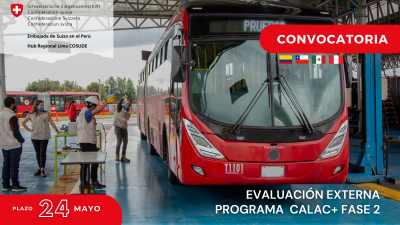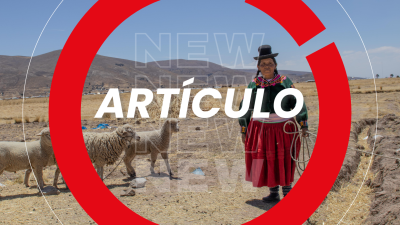Ministry of the Environment and Swiss Government sign an agreement to reduce particulate matter emissions in the Metropolitan Region
CALAC+ is planning to implement some activities between 2018 and 2021. Emphasis will be placed on the implementation of Euro VI buses and electric vehicles for Santiago, as well as on the development of a Road Map and public policies for the certification, verification, and on-site control of “off-road” machinery operation with low emissions.
In order to strengthen the Prevention and Environmental Decontamination Plan of the Metropolitan Region of Santiago de Chile, the Sub-Secretary of the Environment, Felipe Riesco, the Ambassador of Swiss in Chile, Arno Wicki, and the Executive Director (s) of the Chilean Agency of International Cooperation for Development (AGCID), Juan Luis Eugenio Pérez Monje, signed an agreement to reduce harmful atmospheric contaminant emissions such as MP2,5. The CALAC+ initiative will seek to reduce air-borne MP2,5 through the installation of filters in construction machinery.
 |
The Sub-Secretary Riesco expressed that “this initiative of international collaboration between Chile and Suiza is a concrete contribution to decontamination in Santiago” and he added that “reducing particulate matter emissions in the atmosphere has positive effects in people’s quality of life”.
CALAC+ seeks to contribute, from 2020, to the installation of filters in construction machinery such as backhoes, bulldozers, asphalt machines which do not have any type of regulation in Chile to control atmospheric emissions. It is estimated that 18% of MP2,5 emitted in Santiago comes from this machinery.
The importance of regulating emissions generated by the burning of diesel is related to soot emissions (which is present in MP2,5 and is made up mainly of black carbon). Black carbon is highly carcinogenic, and its potential for global warming is 2500 higher than CO2. In addition, these engines operate in densely populated urban areas and near populated areas, and therefore require urgent regulation. Reducing these particles has been a priority for regulations and decontamination programs around the globe, and particle filters are mostly being used for this purpose.
Another measure considered under this agreement is the technical support for the use of clean technologies for urban transportation, either through the establishment of norm Euro VI or the use of electric buses. Currently, Transantiago buses entering the country must be regulated by the Euro V regulation, however, from 2019 they will have to do it through Euro VI regulation, which includes the reduction of MP2,5 and nitrogen oxide.
The current cooperation program will focus mainly on 3 objectives: 1) soot-free and low-carbon buses 2) Incubators of public policies for off-route urban machinery and 3) Global knowledge management network. In reference to this last objective, Chile will have the opportunity to share its experiences, as a pioneering country in Latin America, in connection with the certification, implementation and audit of DPF in public transportation buses, and in the incorporation of off-route machinery filters.
To be considered:The CALAC+ Project is the result of two successful Chile-Swiss cooperation experiences:
i) The first part took place between 2004 and 2009 and ended with the implementation of particle filters (DPF) in Transantiago as well as the creation of a public policy that established that all Euro III buses should be equipped with a factory-made DPF filter;
ii) And the second part took place between 2013 and 2016 and focused on following up on the performance of filters, as well as on DPF audit and maintenance strategies.
About CALAC+
The Climate and Clean Air Program in Cities of Latin America (CALAC+) is an initiative of the Swiss Cooperation (COSUDE) implemented by Swisscontact which seeks to promote efficient and prompt reduction of air contaminants dangerous to human health, and mitigate climate change through the use of diesel particle filters (DPF). The program is implemented in Bogota, Mexico City, Lima and Santiago de Chile. It supports the implementation of measures to reduce emissions of soot, atmospheric contaminants and greenhouse gases from urban transportation and construction machinery. During the previous phase, different initiatives were supported to make urban transportation less intensive in carbon emissions.
Source: Web Ministry of the Environment from Chile
Useful links:
Climate and Clean Air Program in the Cities of Latin America (CALAC+), Project Sheet, Swiss Embassy, Swiss Agency for Development and Cooperation COSUDE








